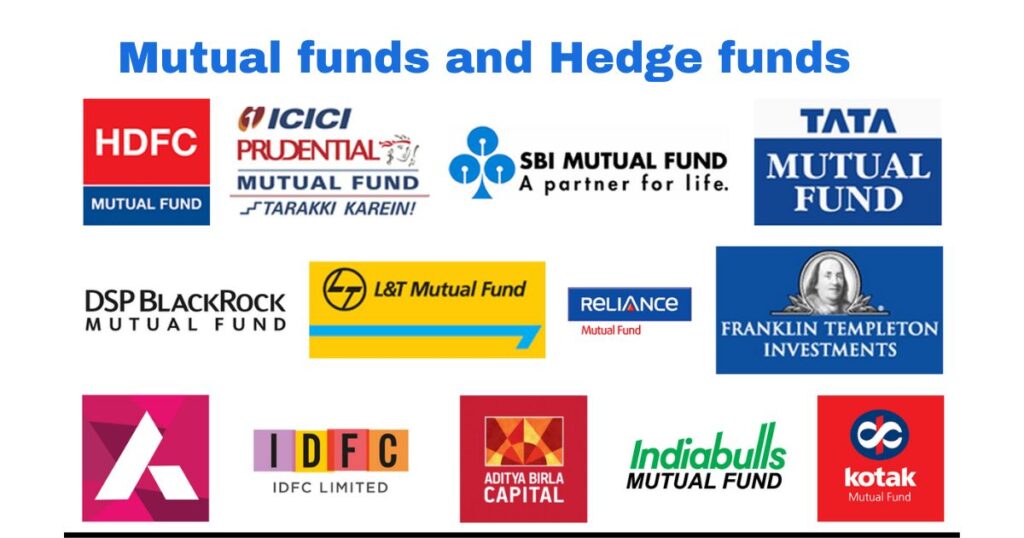Most people have heard that investing is the best way to accumulate wealth. Investment is the act of redirecting resources from being consumed today so that they may create benefits in the future. More precisely, investment is the use of assets to earn income or profit. The wealthiest individuals in the world became wealthy through successful investment of their assets.
In this blog you will be understanding what are basics of investments in india , why do people invests and types of investments in India .
Let’s go over the basics regarding common ways that people invest.
Contents
- 1 basics of investing in stock market india
- 2 what is govt bonds in india
- 3 how to invest government bonds online through sharekhan
- 4 basics of investing in mutual funds and hedge funds in india
- 5 Alternative Investment Funds (AIFs)
- 6 Types of Pension Funds in India
- 7 Compound interest vs simple interest
- 8 how to calculate compound interest using calculator
- 9 Conclusion
- 10 FAQs
basics of investing in stock market india
Stocks and bonds are two of the most common forms of investment. A stock is a representation of ownership in a public company . They can be risky to buy , as their prices can change dramatically and unpredictably , but often the bigger the risk , the bigger the potential reward . There are two ways for stockholders to make money , dividends and capital gains.

basics of investments in India
Dividends are profits paid out four times a year to all shareholders. The size of the dividend depends on the profit of the company.
Capital gains are when a stockholder simply sells their stock for more than they originally paid for it. If the stockholder made a profit, it’s a capital gain. If they lost money, it’s a capital loss.
A market for buying and selling stock is called a stock exchange. Brokerage firms are businesses that help stockholders trade stocks and sometimes even deal out stocks. These days, anyone can easily access the stock exchange on their phone through apps that offer brokerage services.
what is govt bonds in india
A bond is essentially an IOU issued by a corporation or by some level of government. When you buy a bond, you are loaning money in return for a guaranteed payout at a later date. Bonds are usually a more stable investment than stocks. There are three components of bonds, their coupon rate, maturity date, and par value amount.
The coupon rate is the interest rate that a person who issues will pay to the bondholder .
The time at which payment to a bondholder is due is called the bond maturity date .
A bond’s par value, assigned by whoever issues the bond, is the amount to be paid to the bondholder at maturity.

basics of investments in India
Examples for Government bonds in India :
- Treasury Bills (T-Bills)
- Cash Management Bills (CMBs)
- State Development Loans (SDLs)
- Dated Government Securities
- Inflation-Indexed Bonds (IIBs)
- Sovereign Gold Bonds (SGBs)
- Zero-Coupon Bonds
- RBI Floating Rate Bonds
Government bonds in India are considered very safe investments as they are backed by the sovereign guarantee of the government. They provide regular income, diversification benefits, and a hedge against inflation for investors
To invest in government bonds online through Sharekhan, follow these simple steps:
Open an Account : If you don’t already have a Sharekhan account, you’ll need to open both a trading account and a Demat account. This involves submitting some documents for verification and completing a few formalities.
Log In : Once your account is ready , log in to the Sharekhan trading platform .
Find Government Bonds : Look for the section on government bonds or securities on the platform . Here, you can find details about different government bonds , including their features and benefits .
Choose a Bond : Pick the government bond you want to invest in . You will see various options like Treasury Bills , State Development Loans , or Dated Government Securities .
Place an Order : After selecting a bond, place your order. You’ll need to enter how much you want to invest. Make sure to check the minimum investment amount and any fees.
Make Payment : Complete the payment for your bond purchase. You can usually pay online using methods linked to your trading account.
Get Confirmation : Once your payment is done, you’ll receive a confirmation of your purchase. The bonds will be added to your Demat account, and you can view them through your Sharekhan account.
Track Your Investment : Keep track of your bond investment and any interest payments. Government bonds usually pay interest at regular intervals , which will be credited to your account .
Investing in government bonds through Sharekhan is a safe way to diverse your investment portfolio and earn fixed income , as these bonds are backed by the government and are considered low risk .
In order for investment to take place , an economy first must have a financial system, which is the network of structures and mechanisms that allows the transfer of money between savers and borrowers. As we learned in the previous tutorial, when people save their money, they often are actually lending funds to others. Savers and borrowers may be linked directly through what’s known as financial intermediaries. Financial intermediaries are institutions that help move funds from savers to borrowers. They include banks, but they also include mutual funds, hedge funds, and pension funds.
basics of investing in mutual funds and hedge funds in india
A mutual fund pools the savings of many investors and invests this money in a variety of stocks , bonds , and other financial assets .

basics of investments in India
Types of Mutual Funds
- Equity Funds
- Hybrid Mutual Fund
- Debt Mutual Funds
- Fixed-Income Funds
- Solution-Oriented Mutual Funds
A hedge fund is a private investment organization that employs risky strategies that can often make huge profits for investors. In general, these investors already have tremendous wealth and are knowledgeable about investing.
Alternative Investment Funds (AIFs)
Hedge funds in India are structured as AIFs
- Examples :
- ICICI Prudential Long Term Equity Fund (AIF)
- HDFC Hedge Fund
- Motilal Oswal Multicap 35 Fund (AIF)
- Aditya Birla Sun Life AIF (Hedge Fund)
A pension fund is income that some retirees receive after working a certain number of years or reaching a certain age. In some cases , injuries may also qualify a working person for certain pension benefits . Employers set up pension funds by collecting deposits , and pension fund managers then invest those deposits in stocks , bonds , and other financial assets .

basics of investments in India
Types of Pension Funds in India
- National Pension Scheme (NPS)
- Public Provident Fund (PPF)
- Employees Provident Fund (EPF)
- Mutual Fund Schemes for Retirement
- Annuity Pension Funds with Life Insurance Coverage
- Deferred Annuity
- Immediate Annuity
Compound interest vs simple interest
When investing money, it’s important to consider the two types of interest, simple and compound. Simple interest is based on the principal amount of a loan or deposit taken place .
Compound interest is based on the principal amount and the interest that accumulates on it in every period. Thus , it can be called as interest on interest.
Simple interest is only calculated on the principal amount of a loan or deposit. The formula looks like this.
A = P (1 + RT )
where A is the final amount,
P is the initial principal balance,
R is the annual interest rate,
and T is time, usually in years.
how to calculate compound interest using calculator
Compound interest is calculated based on both the principal and interest accrued. The formula looks like this.
A = P (1 + R / N)NT,
where A is the final amount,
P is the initial principal balance,
R is the interest rate,
N is the number of times interest is applied per time period, usually in years, and T is the number of periods elapsed.
Let’s say you invest ₹10,000 at an annual compound interest rate of 5% for 5 years, and the interest is compounded monthly (12 times a year).
- Principal (P) = ₹10,000
- Rate (R) = 5% per year = 0.05 (in decimal)
- No. of times interest is compounded per year (N) = 12
- Time (T) = 5 years
Using the formula :
A= ₹10,000(1+0.0512)12×5
First, calculate 0.0512 fraction
0.0512 = 0.004167
Then :
1 + 0.004167 = 1.0041671
Raise this to the power of 12×5 = 60
1.004167 60≈1.28368
Multiply this by the principal :
A= ₹10,000 × 1.28368 = ₹12,836.80
So, the total amount you will get after 5 years is approximately ₹12,836.80.
The interest earned is :
Interest = ₹12,836.80 − ₹10,000 = ₹2,836.80
Summary
- Simple Interest gives you a total of ₹12,500 after 5 years, with ₹2,500 earned in interest.
- Compound Interest (compounded monthly) gives you a total of ₹12,836.80 after 5 years, with ₹2,836.80 earned in interest.
As you can see, compound interest allows your money to grow faster compared to simple interest because you earn interest on both your initial investment and the interest that accumulates over time.
Conclusion
In general, the best way to invest your money is to put it in a diverse range of securities. This reduces risk, especially when stock or bond prices drop. Therefore, people often invest some of their money in more risky ventures, but invest the rest in more stable funds. It is also better to invest money earlier in life. This is because one of the greatest assets is time. The longer your money is invested in securities, the more it will grow. Put another way, you make more money on the money your money already makes.
FAQs
1. what are the basics of investments in india ?
Most people have heard that investing is the best way to accumulate wealth. Investment is the act of redirecting resources from being consumed today so that they may create benefits in the future. More precisely, investment is the use of assets to earn income or profit. The wealthiest individuals in the world became wealthy through successful investment of their assets.
2. What is stock market ?
A stock is a representation of ownership in a public company . They can be risky to buy , as their prices can change dramatically and unpredictably , but often the bigger the risk , the bigger the potential reward . There are two ways for stockholders to make money , dividends and capital gains.
Dividends are profits paid out four times a year to all shareholders. The size of the dividend depends on the profit of the company.
Capital gains are when a stockholder simply sells their stock for more than they originally paid for it. If the stockholder made a profit, it’s a capital gain. If they lost money, it’s a capital loss.
A market for buying and selling stock is called a stock exchange. Brokerage firms are businesses that help stockholders trade stocks and sometimes even deal out stocks. These days, anyone can easily access the stock exchange on their phone through apps that offer brokerage services.
3. How should a beginner start investing in India?
the best way to invest your money is to put it in a diverse range of securities. This reduces risk, especially when stock or bond prices drop. Therefore, people often invest some of their money in more risky ventures, but invest the rest in more stable funds. It is also better to invest money earlier in life. This is because one of the greatest assets is time. The longer your money is invested in securities, the more it will grow. Put another way, you make more money on the money your money already makes.
4. What are the 4 main investment types?
stocks , bonds , mutual funds and pension funds are the 4 main investment types in India .
5. Can a normal person buy government bonds?
Yes , normal people can also invest in govt bonds in the following way :
To invest in government bonds online through Sharekhan, follow these simple steps:
Open an Account : If you don’t already have a Sharekhan account, you’ll need to open both a trading account and a Demat account. This involves submitting some documents for verification and completing a few formalities.
Log In : Once your account is ready , log in to the Sharekhan trading platform .
Find Government Bonds : Look for the section on government bonds or securities on the platform . Here, you can find details about different government bonds , including their features and benefits .
Choose a Bond : Pick the government bond you want to invest in . You will see various options like Treasury Bills , State Development Loans , or Dated Government Securities .
Place an Order : After selecting a bond, place your order. You’ll need to enter how much you want to invest. Make sure to check the minimum investment amount and any fees.
Make Payment : Complete the payment for your bond purchase. You can usually pay online using methods linked to your trading account.
Get Confirmation : Once your payment is done, you’ll receive a confirmation of your purchase. The bonds will be added to your Demat account, and you can view them through your Sharekhan account.
Track Your Investment : Keep track of your bond investment and any interest payments. Government bonds usually pay interest at regular intervals , which will be credited to your account .
Investing in government bonds through Sharekhan is a safe way to diverse your investment portfolio and earn fixed income , as these bonds are backed by the government and are considered low risk .
Also Read :




